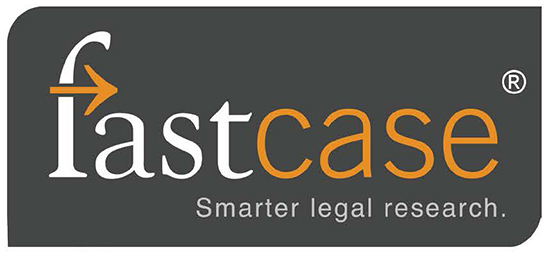Tech Tip
Fastcase Usage Grows Among Small Firms

State Bar members should not forget about Fastcase, an online legal research tool that is available as a member benefit.
A 2016 survey conducted by Clio, a law practice management company, indicates that Fastcase “is in a virtual dead heat with Westlaw and LexisNexis” among small-firm lawyers, according to Robert Ambrogi at LawSites. About the same number of small-firm lawyers using Westlaw and LexisNexis are using Fastcase.
State Bar of Wisconsin members can access Fastcase by logging into their member accounts on WisBar.org. Go to the “for Members” drop down and click on “Legal Research.” Then click on the “Fastcase” button and start searching.
Tutorials and user guides, including free webinars that may be eligible for continuing legal education credit, will teach you basic and advanced legal research tools to maximize this member benefit.
By the Numbers
86
The number of security threats that Wisconsin courts reported to the Director of State Courts Office in 2016. Milwaukee County reported the highest number, at 28.
Parties in criminal and juvenile cases were the most likely sources of court threats and disruption, representing 35 percent of such incidents. Criminal (39 percent) and family law (28 percent) were highest when threats were reported with a particular case type.
Source: Director of State Courts Office
Good Idea
New Database Offers Insights into Wisconsin’s Criminal Justice System

A new online database, in the works the last five years, offers detailed criminal justice data from Wisconsin and five other states, from 2009 to 2013. Nonprofit Measures for Justice, which created the database, is aiming to add data from every county in every state.
The database includes 23 different data sets for Wisconsin, more than any other state, covering all stages of the criminal justice system, from crime and arrest to post-resolution.
For instance, one data set “measures the percentage of 2009-13 cases involving defendants who failed to pay bail amounts equivalent to $500 or less.” Another data set measures “the percentage of 2009-13 cases in which defendants who were released on the own recognizance or on paid bail violated the conditions of release.”
Amy Bach, who directs the project, hopes the data will allow states to identify criminal justice failures and make improvements.
Source: Measures for Justice; JSonline.com
Out There
Drones Win Fight for Unregulated Flight

The U.S. Court of Appeals for the District of Columbia recently ruled that the Federal Aviation Administration (FAA) lacks authority to regulate “model aircraft,” including recreational drones.
The FAA maintained a drone registration rule that required drone hobbyists to register their drones and pay a $5 fee. The court ruled that the FAA Modernization and Reform Act of 2012 expressly exempts “model aircraft” from regulation. Model aircraft include unmanned aircraft “capable of sustained flight in the atmosphere” that are “flown within visual line of sight of the person operating the aircraft” and “flown for hobby or recreational purposes.”
John Taylor, a model aircraft enthusiast and insurance lawyer, filed the lawsuit against the FAA.
Source: Forbes.com
Did You Know
Paul Swanson Takes Over as State Bar President July 1

On July 1, Paul Swanson of Steinhilber Swanson LLP in Oshkosh takes over as the 62nd president of the State Bar of Wisconsin.
Swanson, who served the last year as president-elect, will take his oath on June 14, 2017, preceding the State Bar of Wisconsin’s Annual Meeting & Conference, June 15-16, in Wisconsin Dells.
Wisconsin Supreme Court Chief Justice Patience Roggensack will administer the oath.
Milwaukee lawyer Fran Deisinger ends his one-year term as president and will serve one more year as immediate past-president.
Thank you, Fran! Welcome, Paul!
Quotable
“I wish I could go back to 1986.”

– Brad Smith, president and chief legal officer of Microsoft, speaking in appearances at Marquette University Law School.
Smith noted that Ronald Reagan (Republican) was president and Tip O’Neill (Democrat) was speaker of the house – “two leaders who figured out how to hammer things out.”
And he noted four major laws or reforms adopted in 1986: The Electronic Communications Privacy Act; the Computer Security Act; the Internal Revenue Code; and the last major amendment to immigration law.
“We have just lived through three decades of enormous technological and economic change, and I would argue the law hasn’t caught up.
“And until it does, it puts enormous pressure oftentimes on the courts to apply old laws to new facts, and that’s a tough thing to ask the courts to do.”
Source: Marquette Lawyer (Summer 2017)
